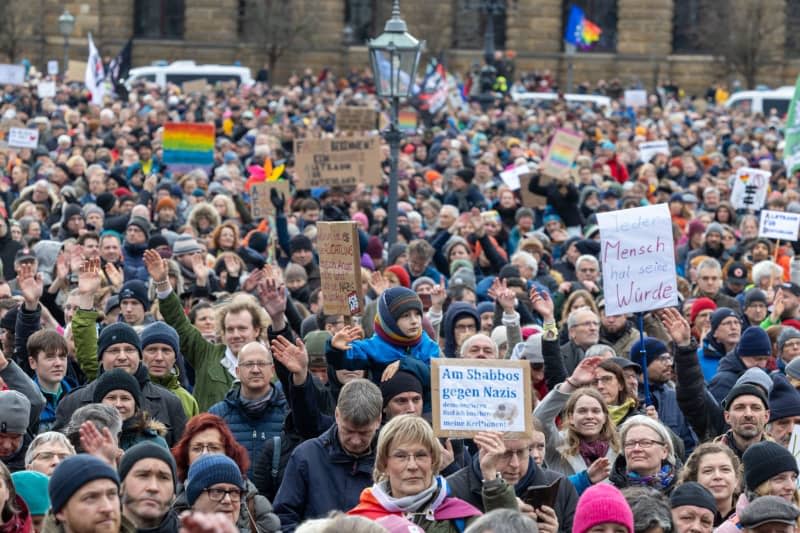Germany's rallies against far right 'could become protest movement'

The many demonstrations in Germany against far-right extremism and the Alternative for Germany (AfD) party during the past few weeks could coalesce into a protest movement, a researcher has said.
A key factor in determining this is whether participants form alliances and agree on common goals and strategies, protest researcher Tareq Sydiq told dpa.
Germany has seen weeks of rallies against the far right after the revelation that extremists met to discuss the concept of "remigration" namely deporting large numbers of people of foreign origin, even under duress.
Meeting attendees included some lawmakers from the AfD, as well as the opposition Christian Democrats and right-wing group Werteunion.
Sydiq said he was surprised at the large demonstrations nationwide just days after the revelations emerged.
The fact that people in rural areas also took to the streets, rather than just in the bigger cities, was also impressive said Sydiq, a researcher at the Centre for Conflict Research at the Philipps University in Marburg who specializes in social movements.
The protests could be modelled on the demonstrations of the 1990s which drew many to support refugees, so had a long-term effect. Further, the current protests could politicize people and promote democracy, he said.
Saturday saw at least 200,000 people take to the streets to rally against the far right in Berlin, Freiburg and other cities.
While the present protests don't have a clear objective yet, the demonstrators can already claim one success: With their sign against the right, they had created a "certain narrative change" in that people now focus not on the content, but "about right-wing extremism in the AfD," said Sydiq.

